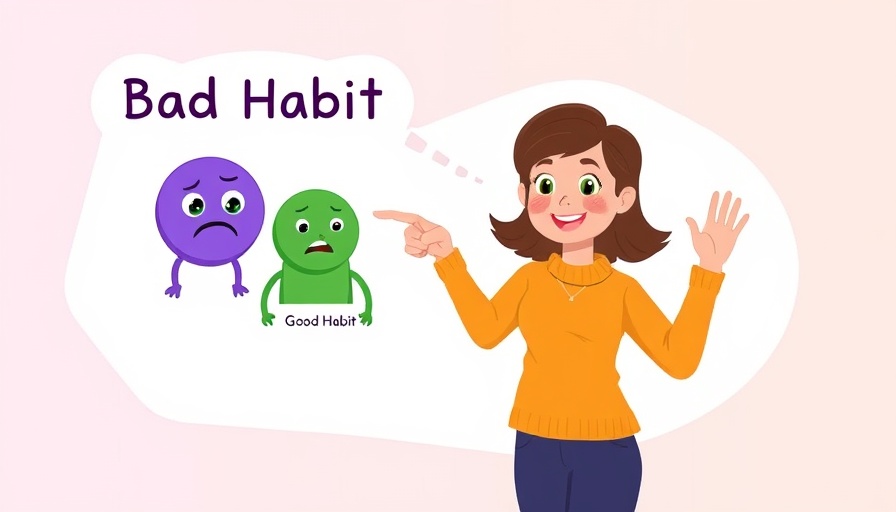
The Journey to Acceptance: Transforming Bad Habits
Many of us have experienced the nagging presence of bad habits—those behaviors we know are detrimental to our wellbeing, yet find ourselves repeating. Whether it's excessive mobile phone use or mindless eating, the struggle is real. The key to overcoming these patterns lies not in sheer willpower or self-judgment but in a transformative process of acceptance.
Understanding the Urge: The Psychological Insight
At some point, we have all battled the seemingly endless cycle of attempting to quit a habit only to find ourselves slipping back into it. When you think about wanting to avoid something, it ironically becomes more pronounced — think of a child being told not to touch a hot stove. The very act of resisting increases our awareness of that desire, prompting us to think about it more obsessively. This is often referred to in psychology as an “extinction burst,” where the behavior might intensify before it eventually wanes.
For instance, when I decided to step away from social media, the first week felt like an uphill battle. The temptation to check my notifications loomed large, and my fingers would instinctively reach for the absent apps. But in those moments of silence, I discovered something remarkable: the awareness of my habits transformed my relationship with them. Instead of condemning myself, I began observing my behavioral triggers.
Practicing Mindful Observation: A Path to Understanding
One effective method I adopted was mindfulness. By cultivating awareness, I learned to recognize what prompted my urges for distraction or escapism. Was it boredom, loneliness, or stress? Journaling became a powerful tool for tracking these patterns. This simple act of writing allowed me to see the emotional landscape of my habits, enabling me to understand the underlying needs rather than just focusing on the behaviors.
Mindfulness emphasizes a non-judgmental observation of oneself, a practice that can foster deeper insight into why we gravitate towards certain habits. Instead of viewing my phone as an enemy, I started acknowledging it while still setting intention to momentarily put it aside.
Rewriting the Narrative: From Punishment to Kindness
The language we use around our habits can significantly impact our journey towards change. Instead of employing punitive language like “I must stop using my phone,” I shifted to a gentler phrasing—“Let’s not use my phone right now.” This small adjustment recognized my urges without completely denying them, creating a kinder internal dialogue.
This gentle approach helped ease the pressure I often put on myself. Acknowledging the desire to use my phone in a non-judgmental manner paved the way for reducing anxiety related to my phone use and allowed me to gradually create a healthier relationship with my devices.
Embracing the Process: Time for Compassion
Each person’s journey is unique. Acceptance does not mean giving up control or permitting negative habits to dictate our choices; rather, it allows us the space to explore the intricacies of our humanity. Understanding that habit change is a process helps in building resilience as we stumble and learn along the way.
Instead of viewing setbacks as failures, I began to see them as moments of clarity. Each return to old habits offered opportunities to learn more about myself—what I was avoiding, what stressors influenced my choices, and which environments enhanced my tendencies.
Empowerment Through Acceptance: Your Next Steps
It is through acceptance, observation, and gentle redirection that we reclaim our power over our habits. Here are some actionable insights to consider:
- Create a Habit Journal: Document your habits, triggers, and underlying emotions. Reflect regularly to identify patterns.
- Use Positive Affirmations: Reframe your thought process around your habits by using supportive language.
- Practice Mindfulness Techniques: Incorporate practices such as meditation or deep breathing to help ground yourself in moments of craving or distraction.
Remember, the path to change does not lie in rigid rules or criticism but in a compassionate understanding of your personal journey.
 Add Row
Add Row  Add
Add 



 Add Row
Add Row  Add
Add 

Write A Comment